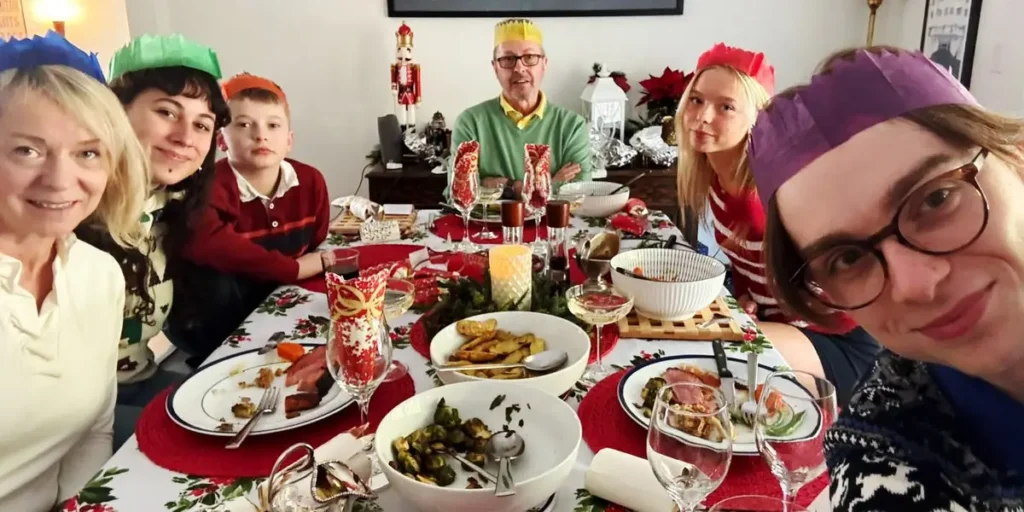A 28-year-old international college student lives in our home in the suburbs of New York City. He’s smart, fun, hilarious, and very low-maintenance.
So, when he made a big deal of asking me a favor last month, I was surprised to see his face looking so serious. He seemed to choose his words carefully, “Would it be OK if one of my friends came for Thanksgiving?”
“Of course,” I said, without hesitation. Then I gently scolded him for thinking, even for a second, that I might say “no.” I assumed he’d been around me long enough to know that I not only love having non-family members visit for the holidays, but I live for it.
I live far away from my family
I’ve only spent Christmas with my family 3 times in the past 20 years. There are complex reasons for this, which other immigrants like me to the US might find easier to understand.
First, there has been a 3,000-mile distance between my father, mother, sister, and brother-in-law and me ever since I moved to the US from my native UK in May of 2005. During those 20 years, we’ve spent Christmas together only three times — twice in Northern England, and once in Stowe, Vermont, when we combined the festivities with a skiing trip.
The jollity could feel a bit forced
My husband’s side of the family lives on the West Coast — almost as far away as mine — so we’ve celebrated very few holidays with my in-laws as well.
For years, our Thanksgiving and Christmas tables were set for just four — my husband, our daughter, our son, and me. While I was grateful that we had each other, these intimate occasions sometimes felt too, well, intimate. The conversation was run-of-the-mill, and the jollity felt a bit forced.
As time went on, after the initial burst of good food aor gift-giving, both the third Thursday of November and December 25 became less distinguishable from other days.
Courtesy of the author.
The kids would get bored and bicker. I’d complain because my husband wanted to watch American football — never my thing — on the TV. It made me feel homesick in New York and left me feeling alienated.
Then 2020 changed everything. COVID was a terrible ordeal, but it created opportunities I hadn’t anticipated.
By then, our immediate family had grown to five members because we had a new au pair from Chile. At last, we had someone else to celebrate the holidays with. It was made all the more special because we went all out on the decorations and traditions to show her the true essence of the American holidays.
The dynamics changed with more people around
But, to my delight, there were a total of seven place settings for Thanksgiving that November. Our au pair invited her best friend, and I invited a colleague who was unable to be with his family due to COVID-19 restrictions.
After the meal, we were joined by a second colleague and the son of a friend who made a last-minute train journey from Brooklyn to visit on a whim.
The dynamics changed. Each of the nine people at the gathering brought something special along with them. The conversation was full of anecdotes and stories we’d never heard before; the kids were fascinated by the company and didn’t even think to whine; we even played English parlor games like charades. I didn’t feel homesick at all.
I want to invite as many friends and friends of friends as possible
It was the best Thanksgiving of my life — an experience I wanted us to repeat on subsequent holidays. Ever since, we’ve made a point of inviting as many friends and friends of friends as we can possibly manage.
I’ll never go back to hosting “just us,” and I look forward to welcoming our brand-new guest next week.

